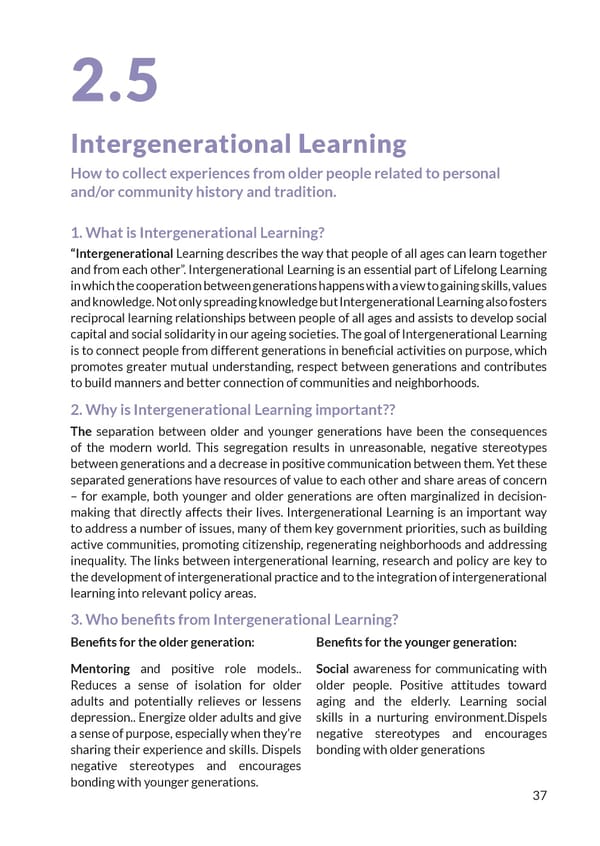2.5 Intergenerational Learning How to collect experiences from older people related to personal and/or community history and tradition. 1. What is Intergenerational Learning? “Intergenerational Learning describes the way that people of all ages can learn together and from each other”. Intergenerational Learning is an essential part of Lifelong Learning in which the cooperation between generations happens with a view to gaining skills, values and knowledge. Not only spreading knowledge but Intergenerational Learning also fosters reciprocal learning relationships between people of all ages and assists to develop social capital and social solidarity in our ageing societies. The goal of Intergenerational Learning is to connect people from different generations in beneficial activities on purpose, which promotes greater mutual understanding, respect between generations and contributes to build manners and better connection of communities and neighborhoods. 2. Why is Intergenerational Learning important?? The separation between older and younger generations have been the consequences of the modern world. This segregation results in unreasonable, negative stereotypes between generations and a decrease in positive communication between them. Yet these separated generations have resources of value to each other and share areas of concern – for example, both younger and older generations are often marginalized in decision- making that directly affects their lives. Intergenerational Learning is an important way to address a number of issues, many of them key government priorities, such as building active communities, promoting citizenship, regenerating neighborhoods and addressing inequality. The links between intergenerational learning, research and policy are key to the development of intergenerational practice and to the integration of intergenerational learning into relevant policy areas. 3. Who benefits from Intergenerational Learning? Benefits for the older generation: Benefits for the younger generation: Mentoring and positive role models.. Social awareness for communicating with Reduces a sense of isolation for older older people. Positive attitudes toward adults and potentially relieves or lessens aging and the elderly. Learning social depression.. Energize older adults and give skills in a nurturing environment.Dispels a sense of purpose, especially when they’re negative stereotypes and encourages sharing their experience and skills. Dispels bonding with older generations negative stereotypes and encourages bonding with younger generations. 37
 MemoryHandbook new Page 36 Page 38
MemoryHandbook new Page 36 Page 38